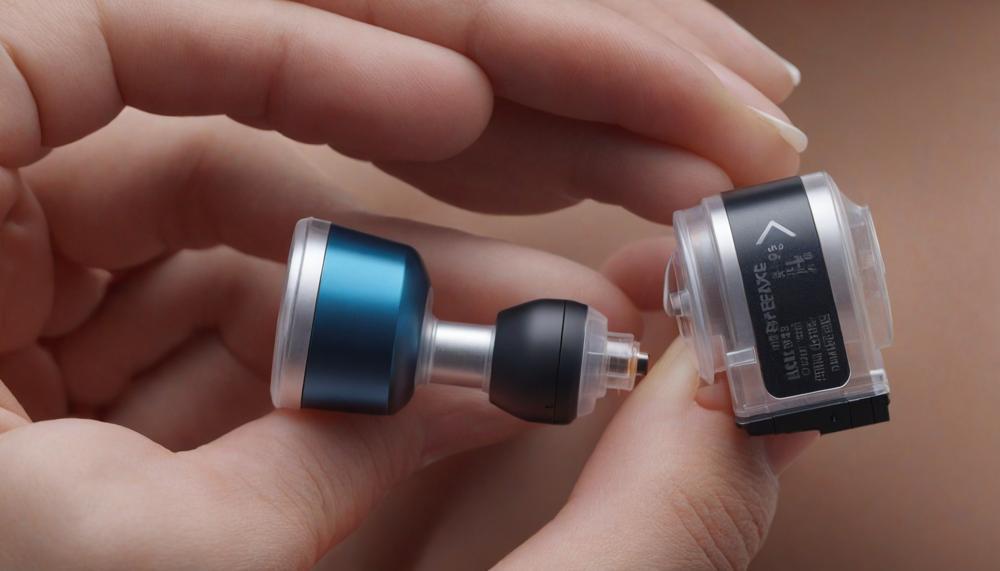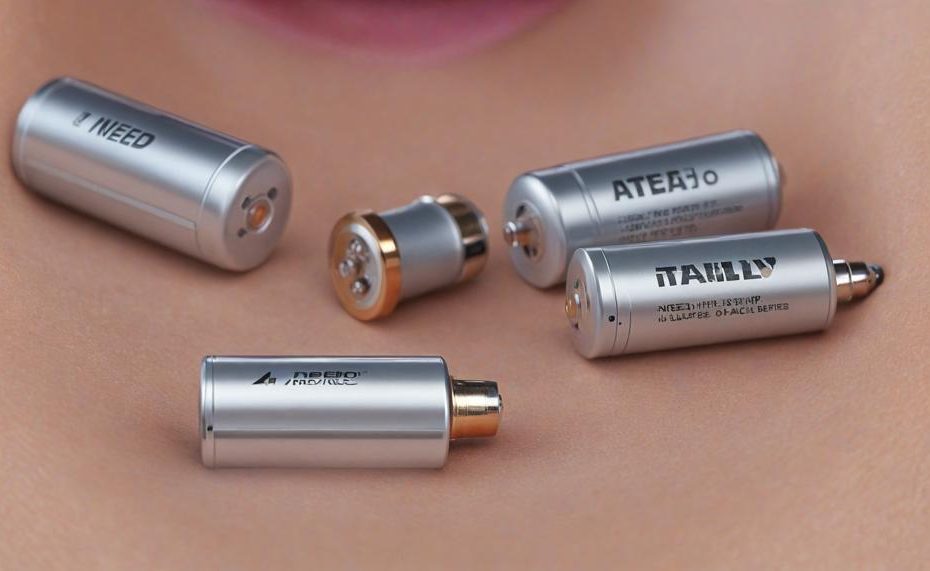Disposing of hearing aid batteries properly isn’t just about following guidelines—it’s about protecting our environment and wildlife. So, can you throw your old hearing aid batteries in the trash? Absolutely not. Improper disposal leads to harmful chemicals leaking into landfills, causing long-term damage.
Yes, there are correct ways to dispose of these batteries that are safe and environmentally friendly. Many hearing aid providers offer battery recycling programs, and local recycling centers often have designated drop-off points.
By following these proper disposal methods, you help ensure that toxic substances are kept out of our soil and water, making a significant impact on environmental preservation. Remember, storing rechargeable batteries correctly also matters, as they can be hazardous if not handled properly. Plus, keeping non-functional batteries in your hearing aid can harm its performance.
Key Takeaways:
- Never throw hearing aid batteries in the trash: This is harmful to the environment.
- Check with your hearing aid provider: They often have battery recycling programs.
- Use local recycling centers: They have drop-off points for battery disposal.
- Store rechargeable batteries properly: Avoid potential hazards.
- Replace non-functional batteries promptly: Ensure optimal hearing aid performance.
Stay informed and take action to dispose of your hearing aid batteries responsibly—it’s a small step with a big environmental payoff.
Contents
Why Should I Recycle Batteries?
Recycling batteries significantly benefits the environment by reducing the harmful effects of hazardous substances like lead, mercury, and cadmium. These materials, commonly found in batteries, can cause severe damage to soil and water ecosystems if improperly disposed of. When batteries are recycled, we prevent these toxic substances from leaching into the environment, thereby safeguarding both nature and human health. Moreover, recycling batteries minimizes pollution and contributes to resource conservation, which is vital for a sustainable future.
Proper disposal of hearing aid batteries is particularly important. These small power sources often contain zinc-air or mercury, which are detrimental to the environment when not correctly discarded. By ensuring hearing aid batteries are recycled, we mitigate their environmental impact and avoid contamination of landfills with toxic materials.
| Benefits of Recycling Batteries | Importance of Proper Disposal of Hearing Aid Batteries |
|
|
Recycling batteries is not merely an eco-friendly act; it’s a critical measure to ensure the health of our planet and its inhabitants.

By participating in local battery recycling programs or taking used batteries to designated recycling centers, individuals and businesses alike can make a meaningful impact.
How Do I Recycle My Used Batteries?
To properly dispose of your used hearing aid batteries and ensure they are recycled, follow these steps:
| Method | Description | Notes |
| Recycling Centre | Drop off used batteries at local recycling centres. | Check local council websites for details. |
| Hearing Aid Provider | Contact your provider for recycling services. | Many providers offer this service. |
| Local Recycling Avenues | Utilise community programs or events for battery recycling. | Look for special recycling events. |
| Electronics Retailers | Drop off batteries at retailers like Best Buy or Staples. | Check with the store for specific guidelines. |
| Special Recycling Bins | Use dedicated battery recycling bins in public places. | Common in libraries, schools, and shopping centres. |
| Hearing Centre Services | Some centres offer pick-up services for used batteries. | Convenient when buying new batteries. |
| Safe Storage | Store used batteries securely until they can be recycled. | Use a container to prevent leakage. |
What Are My Other Options for Hearing Aid Batteries?
When it comes to disposing of hearing aid batteries, you have several eco-friendly alternatives that help protect the environment from toxic waste.
- Recycling Depots: Collect dead batteries at home and take them to a nearby recycling depot. Recycling centres sort the batteries by chemistry and remove toxic metals before converting them into useful items.
- Hearing Healthcare Providers: Some hearing healthcare providers accept used batteries for recycling. Check with your provider to see if they offer this service.
- Local Programs and Events: Look for local programs or community events dedicated to battery recycling. Many municipalities organise special collection events.
- Electronics Retailers: Some electronics stores have dedicated bins for battery recycling. Retailers like Best Buy or Staples often have convenient drop-off points.
- Dedicated Recycling Bins: Use dedicated battery recycling bins, often found in public places like libraries, schools, or community centres.
Conclusion
Proper disposal of hearing aid batteries goes beyond mere compliance—it’s a commitment to environmental stewardship. Simply tossing these batteries in the trash can lead to harmful chemicals seeping into landfills, posing risks to our ecosystem. Instead, recycle your hearing aid batteries responsibly through various convenient methods.
Many hearing aid providers offer recycling programs. Check with your provider for collection services or drop-off points. Local recycling centers often have dedicated bins for battery disposal. Additionally, electronics retailers like Best Buy or Staples typically have battery recycling bins for easy access. Properly storing used batteries in a secure container until you can recycle them is crucial to prevent leakage and contamination.
By participating in these recycling efforts, you prevent toxic substances like zinc and mercury from polluting our soil and water. Each recycled battery contributes to reducing environmental pollution and conserving natural resources. Remember, your small act of recycling can have a profound impact on protecting our planet and ensuring a sustainable future.





